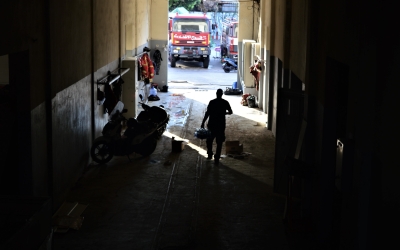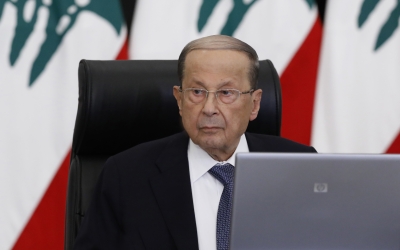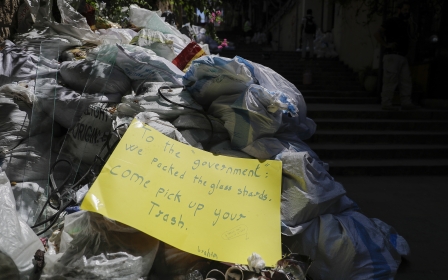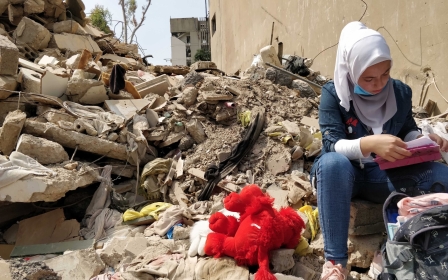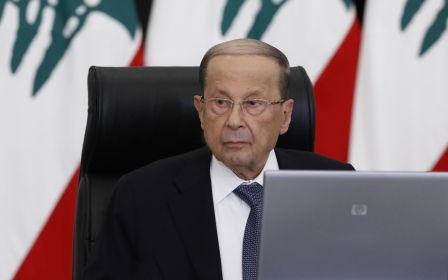Beirut explosion: Lebanese government offers compensation to victims nearly two months on
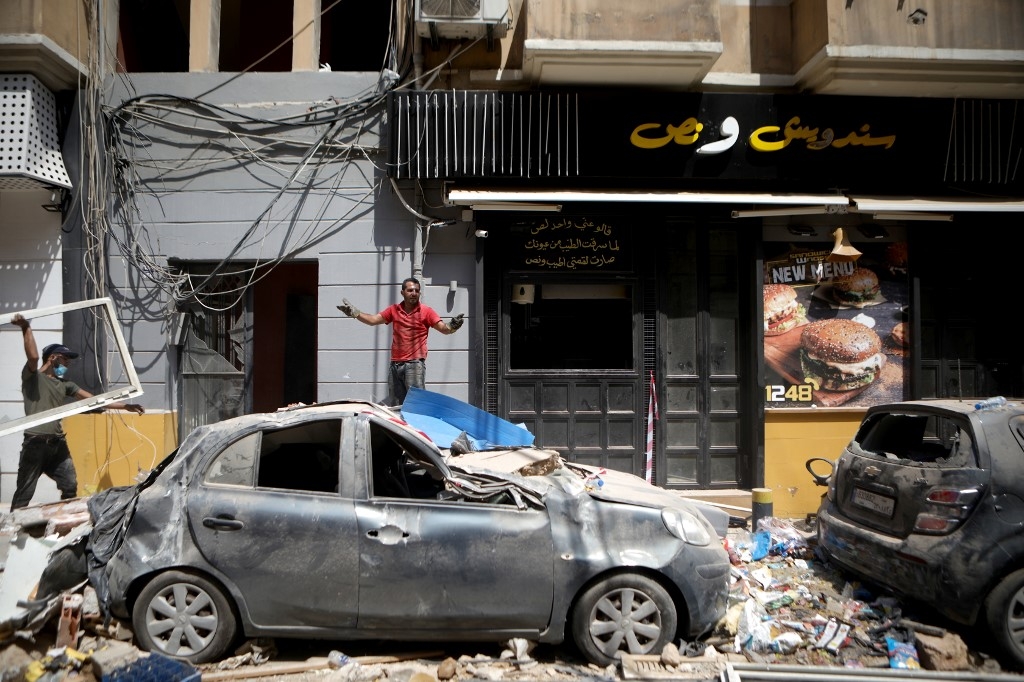
Lebanon on Thursday unveiled a compensation programme for the thousands of homes and businesses devastated by the 4 August blast at Beirut's port.
President Michel Aoun signed a decree allocating 100bn Lebanese pounds ($66m at the official exchange rate, or $13m on the black market) to the programme, his office said.
It added that the army and Beirut municipality would be tasked with setting up a mechanism to distribute the funds.
The compensation would go to owners of homes and businesses damaged in the explosion, which left more than 190 dead and destroyed swathes of the capital, a source at the presidency told AFP.
The move comes after weeks of criticism over how long the government has taken to act.
The army last week said it had surveyed 19,115 businesses and 962 restaurants damaged by the explosion.
Beirut's nightlife districts of Gemmayzeh and Mar Mikhael, known for their bars, restaurants and art galleries, were some of the neighbourhoods hardest hit by the blast.
Local residents said that while many government and NGOs groups had come to assess their material damages, so far nobody had offered any help.
As for businesses, many owners said they had the choice of either repairing the damage now with their own funds, or keeping the doors closed and waiting for government aid or compensation from insurance companies.
'A lot of solidarity'
On Tuesday, AFP reported that some business owners were crowdfunding online to tap into donations from abroad.
Hany Bourghol, 37, co-founder of the Cortado cafe, was able to take out a loan from a United Arab Emirates bank to fix his coffee shop and pay salaries.
He hoped crowdfunding would help him pay the loan back.
"We cannot wait for the army or the government," Bourghol said. "We need to resume work."
The online campaign had collected a quarter of the $20,000 requested.
A Romanian barista who helped Bourghol set up the cafe rallied coffee houses in Romania to send donations too, while an aid organisation had provided free building materials.
"We have had a lot of solidarity," Bourghol said.
No aid without reform
According to an assessment by the army, the blast caused by a consignment of ammonium nitrate damaged almost 61,000 homes and more than 19,000 businesses.
The explosion has compounded Lebanon's worst economic crisis since the 1975-1990 civil war.
On 9 August, the international community pledged around $300m in emergency aid at a conference jointly organised by France and the United Nations.
The UN is to coordinate the aid to ensure it reaches those in need directly rather than through Lebanese government bodies, which are widely accused of corruption.
Prime minister-designate Mustapha Adib is under pressure to form a fresh cabinet as soon as possible so it can undertake long-sought economic reforms.
France's foreign minister on Wednesday called on international partners to increase the pressure on Lebanese political forces to form a government, and again warned that only once reforms were underway would vital financial aid arrive.
"What is at stake is the future of Lebanon," Jean-Yves Le Drian said during the virtual meeting held as part of the United Nations General Assembly.
"Without reforms, there will be no international financial aid."
Middle East Eye delivers independent and unrivalled coverage and analysis of the Middle East, North Africa and beyond. To learn more about republishing this content and the associated fees, please fill out this form. More about MEE can be found here.


